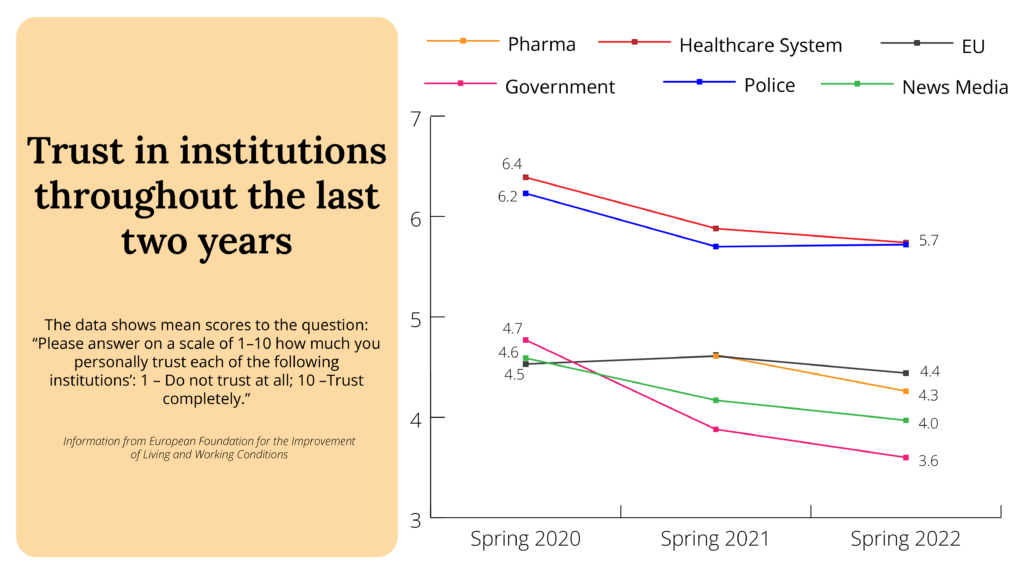Over 200,000 people were polled by the European Foundation for the Improvement of Living and Working Conditions to assess Europeans' well-being, health and safety, work and teleworking, trust, work-life balance, and financial situation.
Released on Thursday, their most recent findings seek to gauge European trust in their institutions.
Key figures
- Trust in all types of institutions has declined in recent years and is measured on a scale of 1 to 10.
- Trust in government fell from 4.7 in 2020 to 3.9 in 2021. It is now at 3.6.
- Trust in the news media is at 4.0 in 2022, down 0.2 points from last year and 0.6 points from 2020.
- Trust in pharmaceutical companies has dropped 0.3 points since 2021 to 4.3.
- Trust in the EU has fallen to 4.4 after peaking at 4.6 in 2021.
- Trust in the police is now at 5.7, unchanged since 2021 but still 0.5 lower than in 2020.
- Trust in the healthcare system is currently 5.7, down from 5.9 in 2021.
Financial concerns
Even though economic activity has increased in recent years and employment has returned to pre-pandemic levels, the economic and social fallout of the War in Ukraine has put trust in European institutions to the test.
Because of this war, 76% of respondents are concerned about rising inflation and rising energy prices.
28% of respondents reportedly live in a household that is struggling to make ends meet and has not paid the entirety of their utility bills.
A further 45% are concerned that they will be unable to pay their utility bills in the next three months.
The effects on health
Because of the pandemic and the strain it put on the healthcare system, many people's mental health has gone untreated, particularly for 24% of women surveyed.
Related News
- Slow and inefficient: The problem(s) with Brussels public institutions
- Recession likely as Euro slumps to new lows
- Understanding Belgium's rampant inflation and what's in store
According to the survey, social media has also played a role in this declining trust. A person whose primary news source is social media has an average trust level of 3, while those who prefer traditional media have a trust level of 4.2.
In response to the survey, Daphne Ahrendt, Senior Research Manager at Eurofound, stated in a press release that "this research should act as an urgent call to action to work to improve trust, engage citizens who feel marginalised, and cover the basic needs of those feeling the pressures of inflation and societal change."

